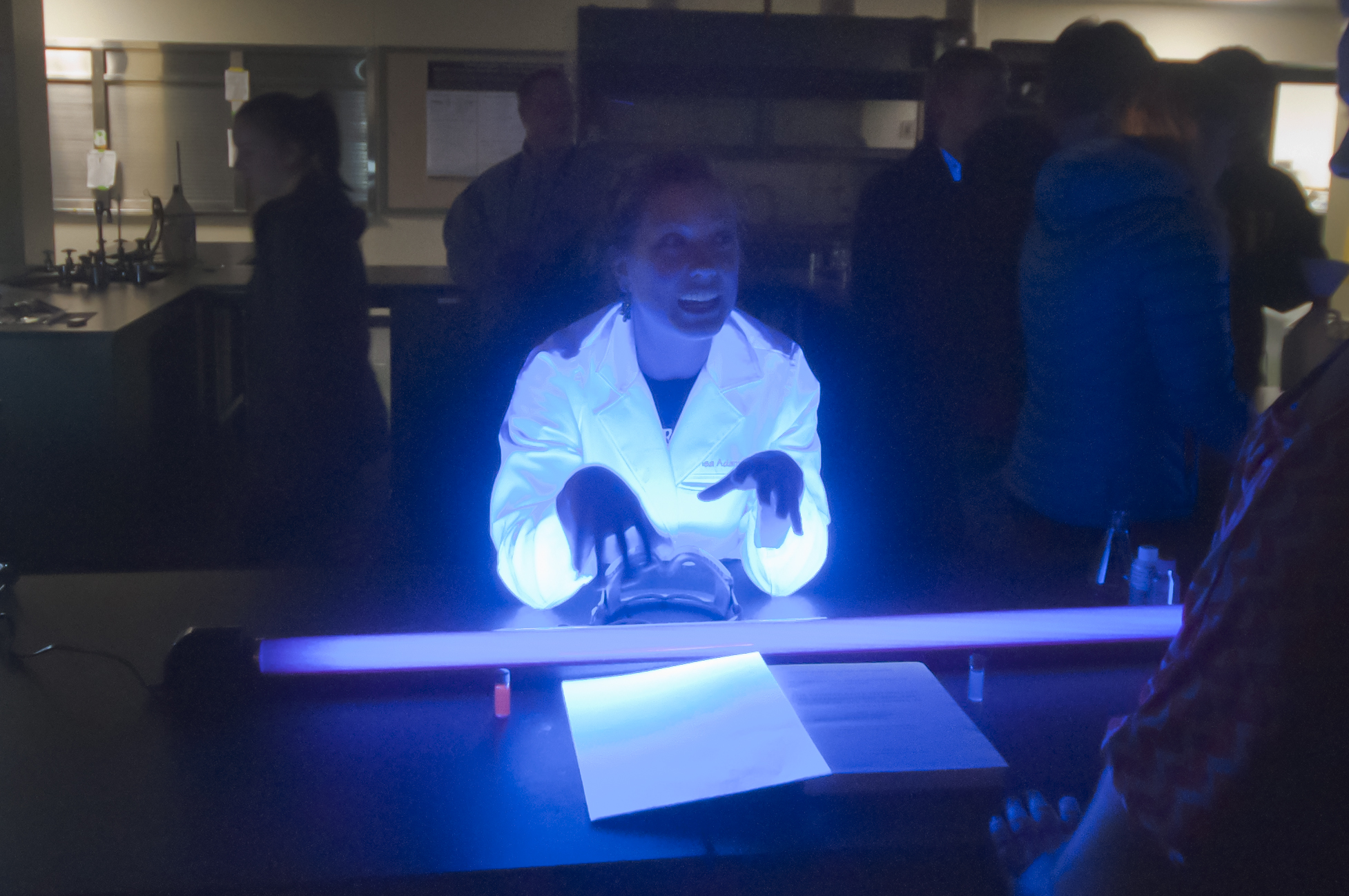 The concept of class received a community focus April 10 at the event “Watch Your Mouth.” In Anderson University Room 133, students primarily from an “Intro to Sociology 101” class listened to and questioned a panel of speakers on their experiences with class identity.
The concept of class received a community focus April 10 at the event “Watch Your Mouth.” In Anderson University Room 133, students primarily from an “Intro to Sociology 101” class listened to and questioned a panel of speakers on their experiences with class identity.
The attendees sat in a circle to facilitate discussion with a PowerPoint to highlight questions. The three panelists also sat in the circle, though at the front of the room.
Senior Lillian Ferraz led the evening event. The students and panelists touched on a variety of other topics like privilege, racism and sexism.
The first panelist to speak was Joel Zylstra, the director of Community Engagement and Services. He told the attendees to recognize their own class privilege.
“By us being here [in college], we already have a leg up,” Zylstra said. He compared this to the scant 28 percent of people living in the area around Pacific Lutheran University able to get any education beyond high school.
Panelist Laura McCloud, an assistant professor of sociology, defined socioeconomic status as one’s income, education and occupation.
“Why does class matter?” McCloud asked the audience. “We want to think of class as only something that is achieved. But initially class is given to us.”
McCloud said class is something that affects people deeply, influencing everything from the foods they eat to how they vote. While it doesn’t mean one’s class is a person’s destiny, McCloud said, it certainly also doesn’t mean that class is irrelevant.
The third panelist, senior Wendy Martinez, spoke about her experiences as someone who immigrated to the U.S. She talked about the long process of getting a job at Pacific Lutheran on a work permit and the privilege students who are citizens have and may be unaware of.
“It’s [the event] a very awareness-raising thing,” first-year Manuel Tirado, who attended the event, said. “It promotes awareness more than anything else.”
When discussing possible forms of activism with class privilege, McCloud described how humor could play a role. She gave the example of attending a meeting with only female attendees, and asking in a humorous manner where all the men were.
Though received as a light comment, she said the question got many women considering why there were no men in attendance. Humor, McCloud said, can be a tool for inspiring a line of inquiry surrounding class or issues of privilege.
Junior Carly Brook said it was a good discussion and that it was intriguing the conversation trended toward the topic of having class privilege versus lacking privilege.
“I kind of noticed that it turned into a discussion of how to deal with your class privilege,” Brook said, “when I don’t know that was case for everyone in the room.”
She also said it was interesting to talk about how some people might have more privilege than others because they went to certain schools that provided information on things like college applications and resumes when other schools did not.
“Overall, I think the event was important to uncover a social status [class privilege] that isn’t talked about as often as it should be,” Brook said.


















